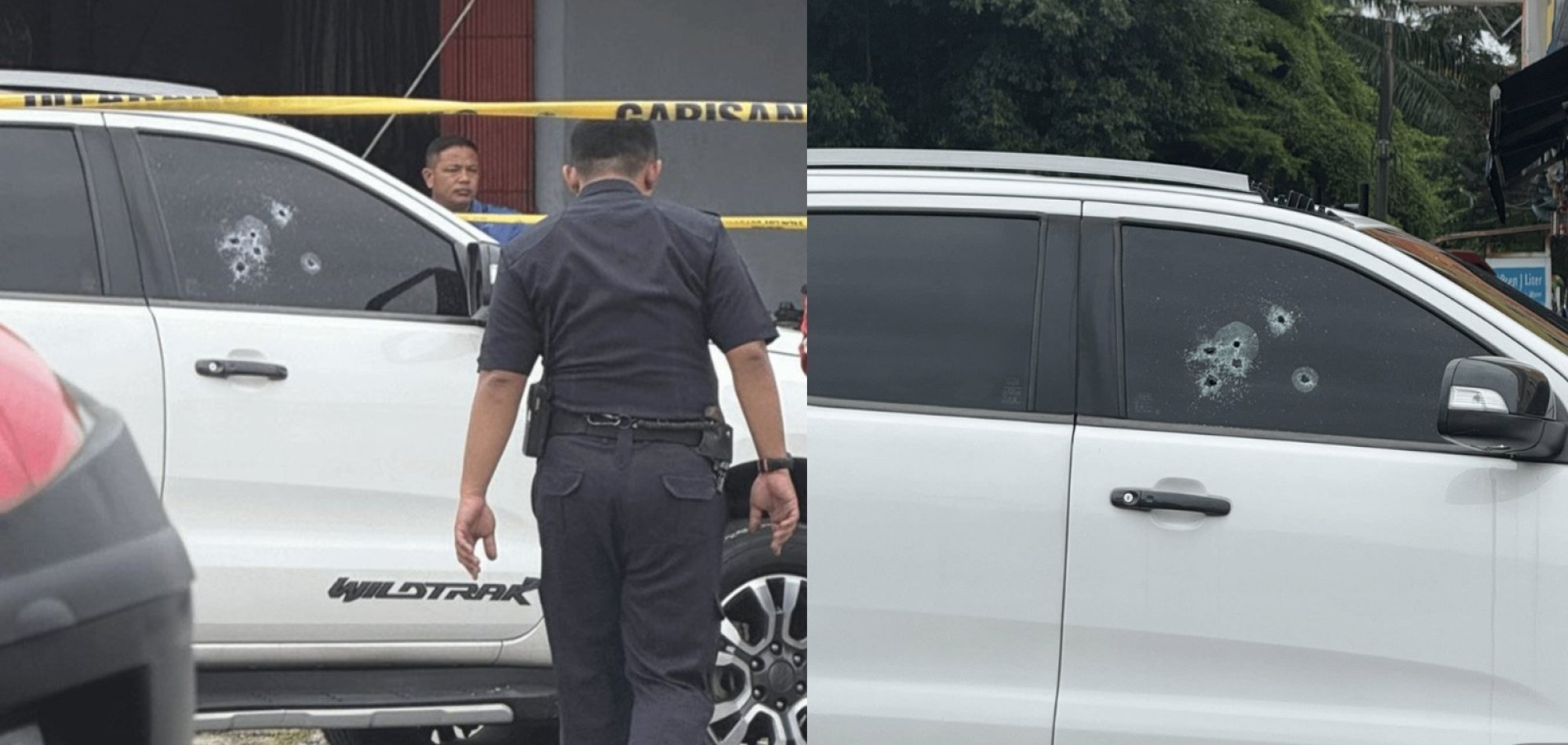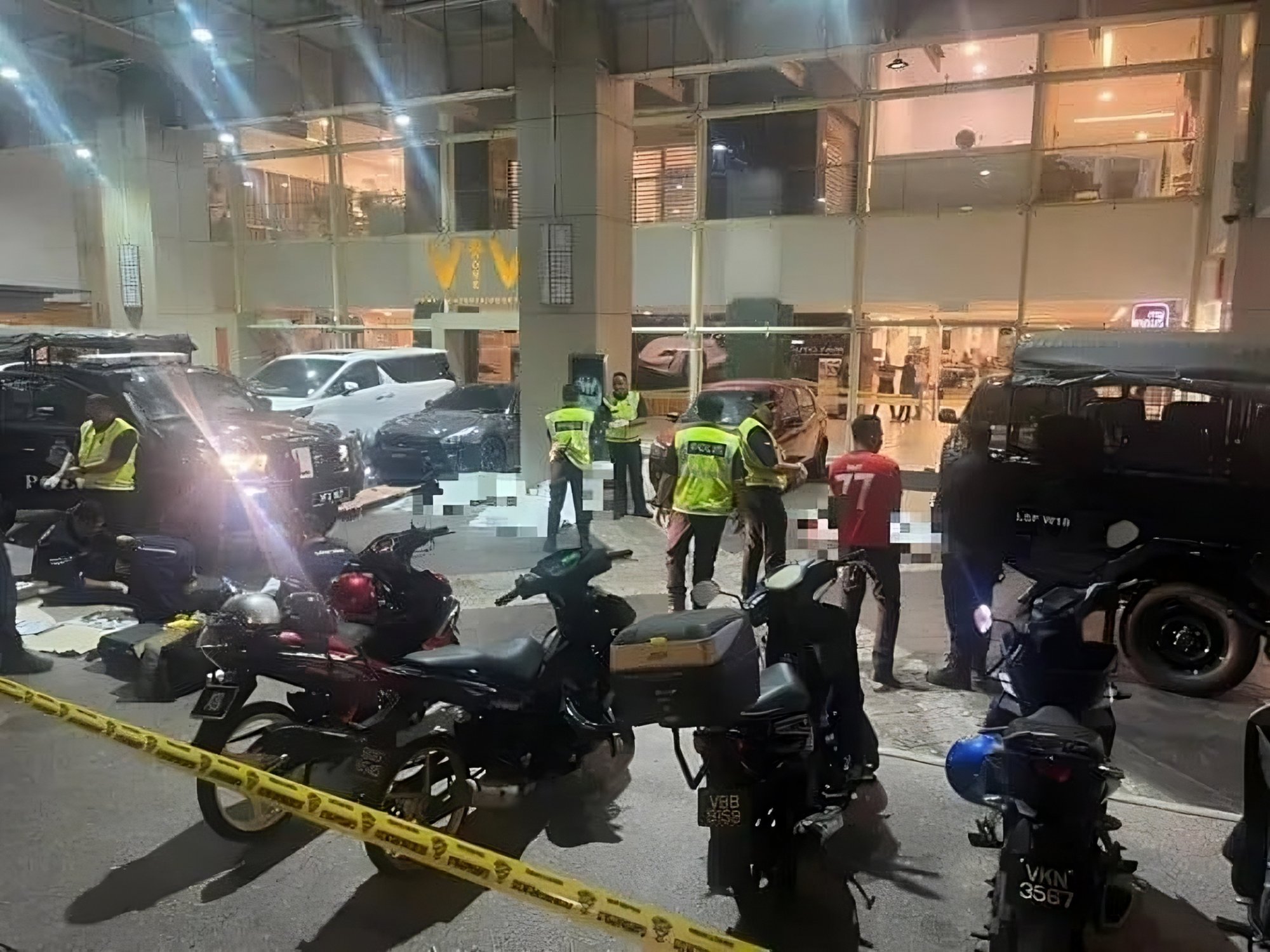Malaysia’s latest gangland shooting linked to international crime syndicate
A series of gun attacks over the past few weeks has triggered fear among Malaysians as most occurred out in the open

Malaysian police believe a man gunned down in his Ipoh home last week was the victim of an international organised crime syndicate, marking the latest in a string of unresolved gang-related assassinations in public places that left five people dead and shocked the country last month.
Gun violence is rare in Malaysia, where unlicensed gun ownership and even brandishing a firearm as intimidation are capital crimes.
But a series of shootings over 12 days in June has sparked public fear – as three of the four incidents occurred at a restaurant, a shopping centre and in traffic in Klang Valley, Malaysia’s most affluent region encompassing Kuala Lumpur and industrialised areas of neighbouring Selangor.
In the latest case in Ipoh, about an hour north of Kuala Lumpur, the 57-year-old man was found dead in his home on June 24 with gunshot and knife wounds to his chest and abdomen. Police initially pinned the killing on his 31-year-old son, who discovered the body.

Perak state police chief Noor Hisam Nordin later said investigations revealed the murder was linked to a major organised crime syndicate with international ties.
“There is a possibility that the victim himself was involved in the syndicate,” Noor Hisam told local media. “The police investigation will involve Aseanapol and Interpol.”
The victim’s CCTV camera was not operational during the attack, which occurred around 7.30pm, and no valuables were stolen.
The police did not elaborate further on the nature of the alleged syndicate.
This revelation of an international connection raises the stakes from what was initially thought to be a turf war between rival local gangs. Two of the previous victims had prior criminal convictions, including for murder and gang-related activities.
On Wednesday, Kuala Lumpur Deputy Police Chief Mohamed Usuf Jan Mohamad said police had identified the motives behind the previous killings, citing gangland elements, turf disputes and revenge linked to drug activities.
With over 20 witness statements recorded, Mohamed Usuf said police had “more or less identified” the culprits. “We’ve received a lot of information, including indications that the suspects are trying to escape,” he said, adding that investigations were ongoing.

In another shooting incident on Thursday, a fast-thinking man in the northern state of Penang escaped injury when he spotted a motorcycle heading straight for his parked car and quickly reclined his seat.
“That’s when the two suspects on the motorcycle opened fire, but the bullets missed him,” Penang Deputy Police Chief Mohd Alwi Zainal Abidin told local newspaper Malay Mail.
Police have not ruled out the possibility that the shooting was gang related as the victim, a businessman in his forties, was a former member of a crime syndicate.
Independent criminologist Shahul Hamid Abd Rahim said Malaysia’s porous borders made it easy for criminals to enter and escape, as well as smuggle weapons. He urged police to ramp up investigations as such attacks were becoming more brazen and risked harming bystanders.
“We worry that all this is happening in public places and could harm members of the public,” he said. “It can also jeopardise Malaysia’s reputation as a safe tourism destination.”
In a separate security development, Malaysian police announced on June 28 that they had broken up a Bangladeshi terrorist ring operating in the country. The 36 Bangladeshi nationals arrested in the raid are suspected of involvement in the radical militant group, which is believed to have set up a recruitment cell locally.